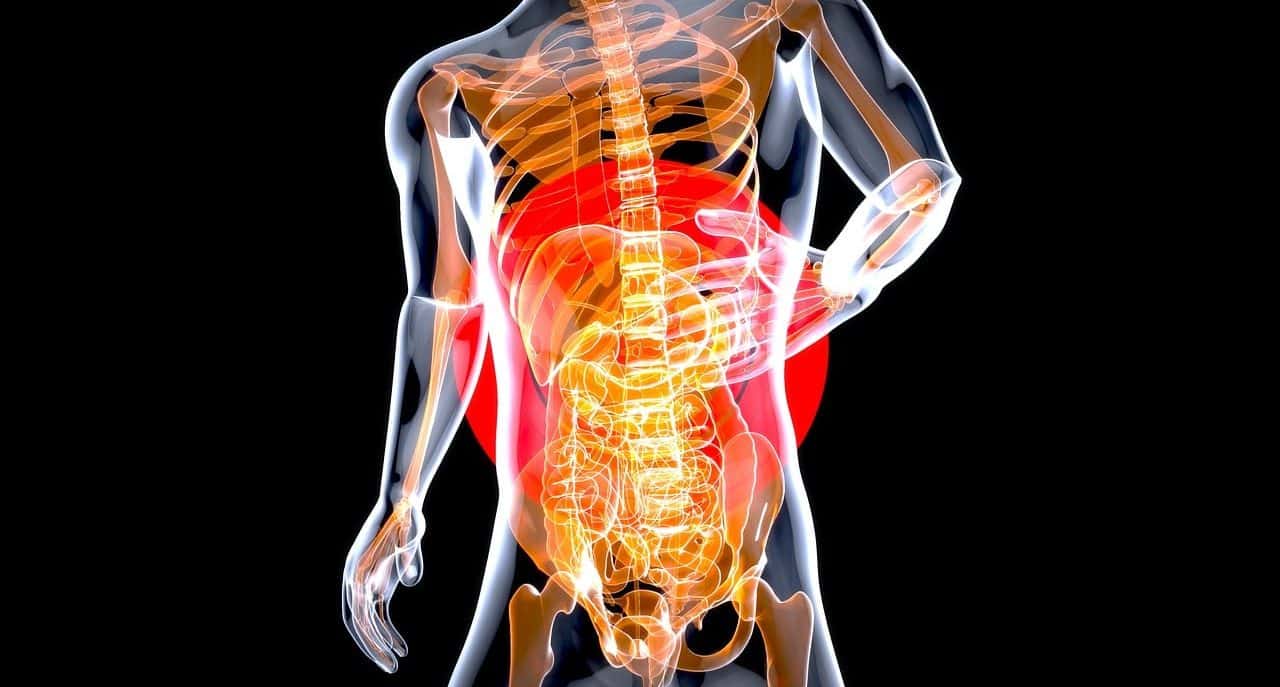
Peritonitis is an inflammation of the peritoneum.
Peritonitis is a medical condition that refers to a swelling that occurs in the peritoneum , a membrane that covers various viscera of the abdomen . This disorder, which is also known as acute abdomen , can cause the death of the patient if it is not treated in time.
Inflammation of the peritoneum can develop in a specific place or generally throughout the membrane. Peritonitis originates for various reasons, from trauma to infection , to a complication derived from appendicitis . What specifically causes bloating is the accumulation of blood, pus or other fluids in the abdomen.
Symptoms of peritonitis
The main symptom of peritonitis is a strong and sudden pain in the abdomen that worsens if the person moves the area. Other symptoms that may appear are the following:
- Increased body temperature (fever).
- Vomiting and tachycardia.
- Shivers.
- Insufficient or no evacuation of feces, or gases.
- Excess physical fatigue.
- Urinating less than normal.
- Difficulty breathing.
- Excessive firmness of the abdominal tissue .
- Too much sensitivity in the affected area.

Various symptoms can reveal peritonitis.
Diagnosis and treatment
When faced with very strong pain in the abdomen, therefore, we must go to a doctor , who will be in charge of performing an initial examination, which consists of palpating the area to detect inflammation. He or she may also order a CT scan , X-ray , and blood tests to confirm the diagnosis. It should be noted that the pain is usually so severe that peritonitis patients typically contract and writhe, as well as resist when the doctor tries to touch the affected area.
Treatment of peritonitis usually includes surgery and antibiotics . The doctor will seek to drain the fluids that cause inflammation and, through drugs, eliminate the infection (if it has occurred). If peritonitis does not receive adequate treatment, it can lead to dehydration and cause malfunction of various organs, something that is potentially lethal.
Spontaneous peritonitis
Spontaneous peritonitis occurs when the peritoneum becomes inflamed and generally appears due to an accumulation of fluid in the space between said membrane and the abdominal organs (a condition known as ascites ) and its subsequent infection. Ascites, for its part, usually appears as a result of advanced liver disease (which may be related to alcoholism, cirrhosis, or chronic viral hepatitis) or kidney disease (it may occur in patients receiving peritoneal dialysis to treat a kidney failure).
The symptoms are equivalent to those described above, with the addition of joint pain . Tests include a white blood cell count of the infected fluid and an ultrasound or CT scan of the abdominal area.
The treatment of spontaneous peritonitis is linked to its cause:
- Surgery for cases caused by foreign bodies, such as catheters used in dialysis.
- Antibiotics , if the origin of peritonitis is a disease.
- Intravenous therapy to combat dehydration.
Secondary type disorder
Secondary peritonitis occurs when the tissue itself becomes inflamed due to another condition (usually another infection from the digestive tract). When there is a hole in the appendix, for example, or in the colon, or an ulcer in the stomach, bacteria can escape and reach the peritoneum and cause this condition. The same can happen due to an injury such as a gunshot or stab wound.
Thirst and decreased appetite add to the aforementioned symptoms. Regarding tests, urine analysis and kidney and liver function controls are added. Surgery is usually the most common treatment, since secondary peritonitis is a very serious condition. The patient's general health and the time before seeing a doctor are key to recovery.
